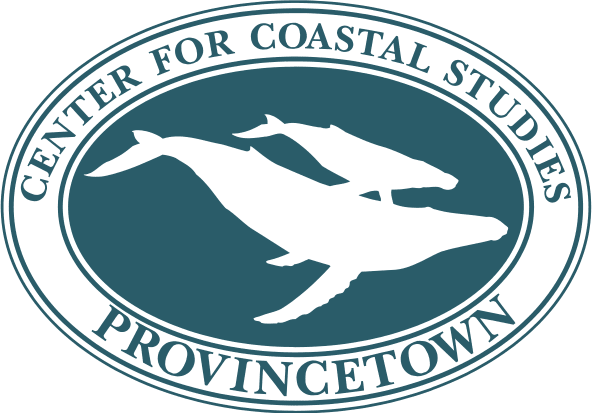The Early Right Whale Season in Cape Cod Bay
The right whale season in Cape Cod Bay has begun with a larger than average influx of whales. Supported by NOAA through the Massachusetts Division of Marine Fisheries, and by the Massachusetts Environmental Trust, the Center for Coastal Studies’ aerial survey team has completed 6 Cape Cod bay flights of 565 km each since 6 December. The habitat profiling team headed by Christy Hudak has been at sea for four cruises tracking the quality of the food resource while recording behavior and photographing whales for individual ID and health assessment.
The first right whale of the season, adult male EgNo 2760, was recorded on 20 December by our disentanglement team while freeing a humpback whale. The first right whales recorded during aerial surveys were identified on 19 January. Since then feeding aggregations of whales have formed along the eastern shore of the bay, close to and visible from the land between Wellfleet to Provincetown. Although we are in the midst of matching individuals, we have a preliminary estimate that 25 to 30 individuals were photo IDed before mid February.
Generally the period from late December through the first week of March is the beginning of the right whale season in Cape Cod waters and we anticipate an increase in numbers of whales beginning by mid-March, with a peak around mid- April. Although the number of individual right whales identified through mid February 2017 is higher than the early-season average, their numbers, behavior, and distribution are following the same broad pattern of the recent past. The food resource, the primary driver of right whale aggregation and behavior in the bay, also appears typical of the early season, with the winter copepod genus Centropages spp. dominating the zooplankton both in whole bay and in the vicinity of whale feeding aggregations.
Our aerial survey observers, Amy James, Brigid McKenna, and Alison Ogilvie, report that 3 whales have an “abnormal skin condition” suggesting health issues; those whales have been reported to NEAq for evaluation. To date we’ve reported 5 whales from the APB list and have proposed 2 new individuals for listing.
With the usual flux in the movement of whales to and from offshore areas, forecasting the 2017 Cape Cod Bay season is mostly guesswork. Nevertheless the numbers of foraging whales during the early 2017 season, the extensive and relatively rich food resource, and early indications of a rise in the late-winter zooplankter, Pseudocalanus spp., suggest another year of moderate to high numbers of whales in the bay, perhaps comparable to the 150 to 200+ individuals documented in recent past seasons. Amid reports of reduced sightings in habitats along the East Coast, it will be interesting to see if Cape Cod Bay continues to attract a large portion of the North Atlantic population.
Charles “Stormy” Mayo
Right Whale Ecology Program
